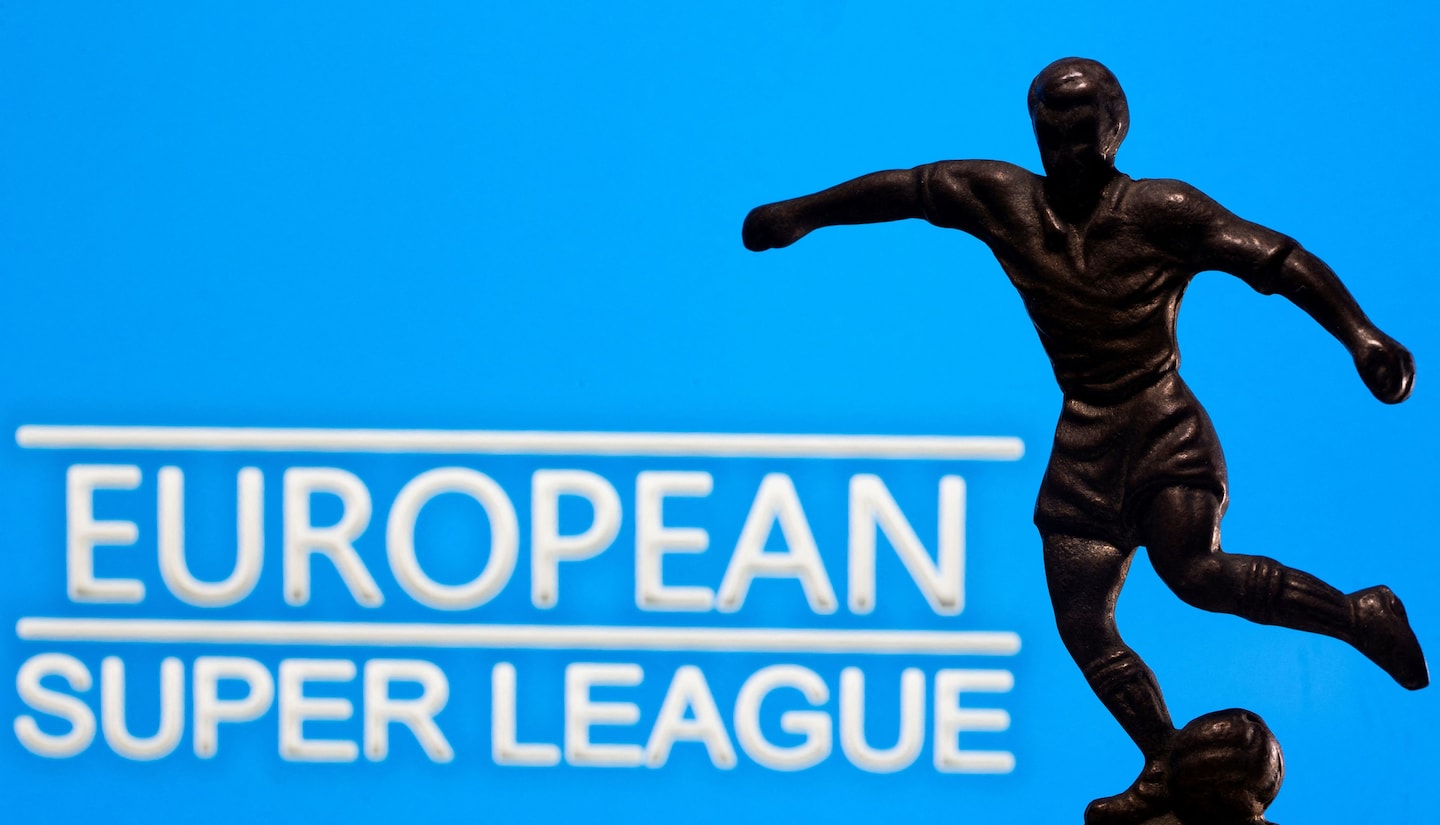In April 2021, 12 of Europe’s wealthiest club soccer teams announced the formation of the Super League, a new 20-team competition to determine the continent’s annual professional champion. Those 12 teams — AC Milan, Arsenal, Atlético Madrid, Barcelona, Chelsea, Inter Milan, Juventus, Liverpool, Manchester City, Manchester United, Real Madrid and Tottenham Hotspur — plus three others would have been permanent Super League members, with the other five changing annually based on achievements from the previous season. This differed from the Champions League, which requires all teams to qualify on an annual basis. With reported backing from U.S.-based investment bank JPMorgan Chase, among others, the new league also would have paid its teams hundreds of millions of dollars more than the Champions League.
The Super League was met with immediate backlash from nearly all of European soccer, with fans decrying its American-style closed concept. UEFA President Aleksander Ceferin called the 12 breakaway teams “snakes” and said they were spitting “in the face of football lovers,” and Europe’s governing body banned the 12 teams from UEFA competitions, even if the Super League never got off the ground (the bans were never enforced because of the ensuing legal action). In the face of such opposition, the Super League concept seemingly collapsed within days of its unveiling, with all six of its English participants plus three others backing out.
But the Super League’s remaining supporters — namely Spanish clubs Real Madrid and Barcelona and Italy’s Juventus — pressed on, asking the European Court of Justice to rule on whether FIFA’s and UEFA’s rules about the establishment of new competitions violated European law. Thursday’s ruling found that FIFA and UEFA rules were not “transparent, objective, non-discriminatory and proportionate” and deemed the punishment of the proposed Super League teams “unlawful.”
However, the court also ruled that its decision “does not mean that a competition such as the Super League project must necessarily be approved.”
Nonetheless, A22 Sports Management — the Madrid-based company hired by the remaining Super League hopefuls to promote the prospective competition — announced a new Super League proposal for both men’s and women’s soccer almost immediately after Thursday’s ruling. The men’s portion would feature 64 teams spread over three divisions, with no permanent members and qualification based on performance. The women’s side of the competition would feature 32 teams over two divisions.
“We have won the right to compete. European club football is free,” A22 CEO Bernd Reichart said in a statement announcing the new Super League. “The near-70-year UEFA monopoly is finally over, and the Court’s decision has far-ranging and positive consequences for football. We will continue working with clubs, leagues and other stakeholders without fear of sanctions to create the best and most fan-centric football competitions in Europe. Critically we will maintain our commitment to domestic leagues and the football pyramid, and for the first time since 1955, pan-European competitions can now be governed by the participating clubs themselves as is the case in virtually all European domestic leagues.”
In its own statement, UEFA said that “the ruling does not signify an endorsement of the so-called ‘super league’ ” and that it already had amended its rules about new competitions to comply with European law.
“UEFA remains resolute in its commitment to uphold the European football pyramid, ensuring that it continues to serve the broader interests of society,” the statement said. “We will continue to shape the European sports model collectively with national associations, leagues, clubs, fans, players, coaches, EU institutions, governments and partners alike.”
The Super League’s prospects remain dim, at least in terms of the scope hoped for by its supporters. Last year, English Premier League owners agreed in a new charter that they would “not engage in the creation of new competition formats outside of the Premier League’s rules,” and any league that did not feature England’s top clubs would not attract the attention — or the financial backing — Super League supporters are seeking
“While the corpse might continue to twitch in the European courts, no English side will be joining,” Kevin Miles, chief executive of the Football Supporters’ Association, said in a statement. “The incoming independent regulator will block any club from competing in domestic competition if they join a breakaway super league. Success must be earned on the pitch, not stitched-up in boardrooms.”
The DFL, which operates the top two leagues in Germany, said in a statement that it “rejects competitions outside of those organized by the associations and leagues.”
Javier Tebas, president of La Liga in Spain, accused Reichart of behaving as if he had been drinking “until 5 in the morning” and said there “won’t be a Super League in two years, or six, or eight,” even if the top two teams in his league — Real Madrid and Barcelona — remain committed to the Super League idea.


 Best Underground Water Leak Detection Equipment 2024
Best Underground Water Leak Detection Equipment 2024  Best Backyard Ideas: Turn Your Outdoor Area Into a Creative and Calm Haven
Best Backyard Ideas: Turn Your Outdoor Area Into a Creative and Calm Haven  Babar, Rizwan are good players but not whole team, says Mohammad Hafeez
Babar, Rizwan are good players but not whole team, says Mohammad Hafeez  Pak vs NZ: Green Shirts aim to bounce back against Kiwis today
Pak vs NZ: Green Shirts aim to bounce back against Kiwis today